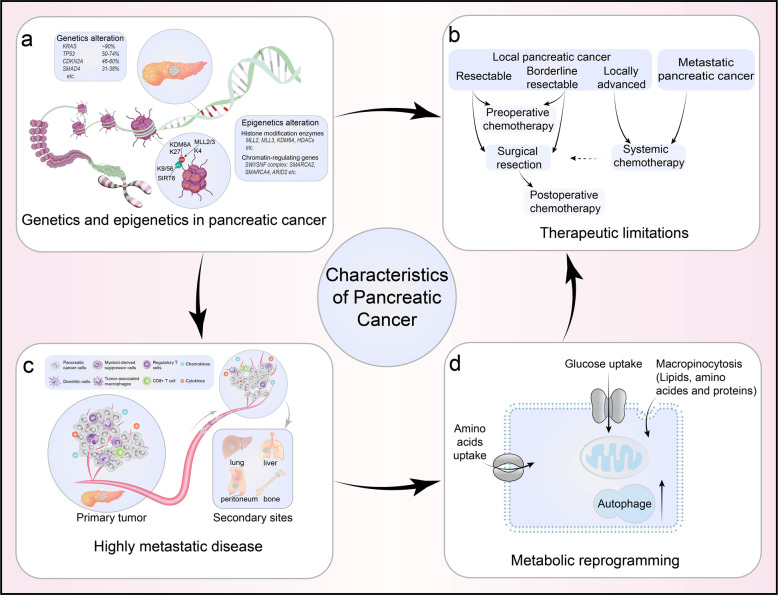Fig. 1.
The characteristics of pancreatic adenocarcinoma. Pancreatic cancer is a common cause of cancer mortality characterized by high heterogeneity, a dense stromal tumor microenvironment (TME), highly metastatic propensity, metabolic reprogramming, and limited benefits from current conventional therapies. a Genetic and epigenetic changes in pancreatic cancer. KRAS (~90%), TP53 (50–74%), CDKN2A (46–60%), and SMAD4 (31–38%) are the most frequently mutated genes known to modulate the initiation and progression of pancreatic cancer. Epigenetic regulatory genes, including MLL2/3, KDM6A, and multiple HDACs encoding genes, regulate histone modification. SMARCA2/4 and ARID2 modulate chromatin remodeling. b Therapeutic limitations in pancreatic cancer. Surgical resection is the only potentially curative choice for pancreatic cancer patients. Adjuvant chemotherapy can only partially improve the overall survival of pancreatic cancer patients c Pancreatic cancer is an extremely aggressive tumor with high metastatic propensity. The immunosuppressive TME plays an important role in modulating the metastasis of pancreatic cancer cells to the liver, lungs, peritoneum, and bone. d Metabolic reprogramming of pancreatic cancer. Pancreatic cancer cells can survive and proliferate in stressful microenvironments by reprogramming energy metabolism to increase glucose and glutamine uptake, macropinocytosis, and autophagy

